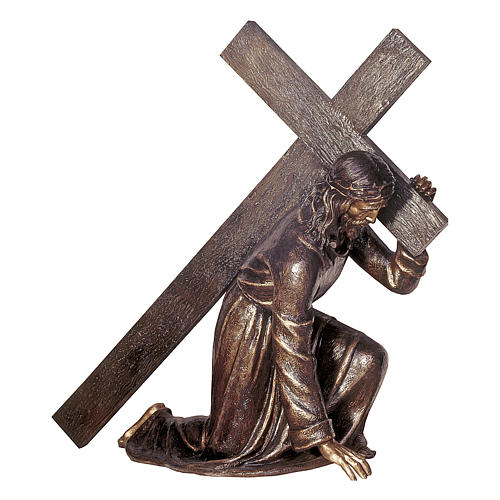
In a world in which falsehood is powerful,
the truth is paid for with suffering.
The one who desires to avoid suffering, to keep it at bay,
keeps life itself and its greatness at bay;
he cannot be a servant of truth and thus a servant of faith.
There is no love without suffering –
without the suffering of renouncing oneself,
of the transformation and purification of self for true freedom. – Pope Benedict XVI
This Holy Week, I am reflecting on something my moral theology professor, Germain Grisez, said back in 1991 when I took a class with him on the problem of evil. He asked us, in his philosophical way, “What is your life-organizing principle? In other words, what is the central commitment of your life around which all other commitments find their right place?” He went on to say, “For most of us, the answer to this would depend on the day. We tend to be fragmented, having many competing principles that vie for first place.” Then he listed examples of what could be life-organizing principles:
A desire for a quiet, conflict-free life. Freedom from suffering or difficulties. Maximizing pleasure. Good times. Everybody getting along. People’s approval. Recognition and applause. Success. Being busy and productive. A comfortable life. The ability to do what we want when we want. Control over others’ lives. Or a big one: avoidance of pain out of fear.
He mentioned other things as well and offered colorful anecdotes for a number of them. Then he said,
Of course, not all of these things are necessarily bad things, rightly placed. But the question here is, what rules your life? Examining this is one of the most important discernments we can engage in. All other vocational discernment depends on this one.
For the Christian, the core life-organizing principle should be faith in Jesus Christ. And this faith includes in itself the whole Gospel, the way of the disciple, the way of trust in God’s providence, the way of the cross – all of which translate into the desire and resolve to do God’s will, which would be the way of love for God and neighbor according to the pattern of the Passion.
Jesus’ story in the four Gospels is told as the unfolding of a human life wholly dedicated to the will of the Father, spelling out the implications of “the way of love.”
He quoted John 4:34 — “Jesus said to them, ‘My food is to do the will of him who sent me and to complete his work.’” — and 5:41 “I do not accept glory from human beings.” Dr. Grisez went on to say:
Here you can see Jesus built his life around the Father and demanded of all his followers the same. He made it clear that trials and hardships, carrying one’s cross in life, is a precious gift. These lay bare what are our REAL life-organizing principles. When things fall apart, don’t work out the way you expected, try to discern beneath your reaction what it was you really were after.
If our center is not faith, life’s hard knocks will wash away our house built on sand. And that’s a mercy! We should be grateful for trials— that’s the refrain of the New Testament. If your life is dedicated to any of those other starting points [listed above], no Christian vocation, lifelong commitment or approach to life is intelligible.
This is why St. James began his letter by saying: “Count it all joy, my brethren, when you meet various trials, for you know that the testing of your faith produces endurance. And let endurance have its full effect, that you may be perfect and complete, lacking in nothing.”
These holy days ahead, may God grant us the grace to organize our lives around the cross of Jesus Christ, our only hope.